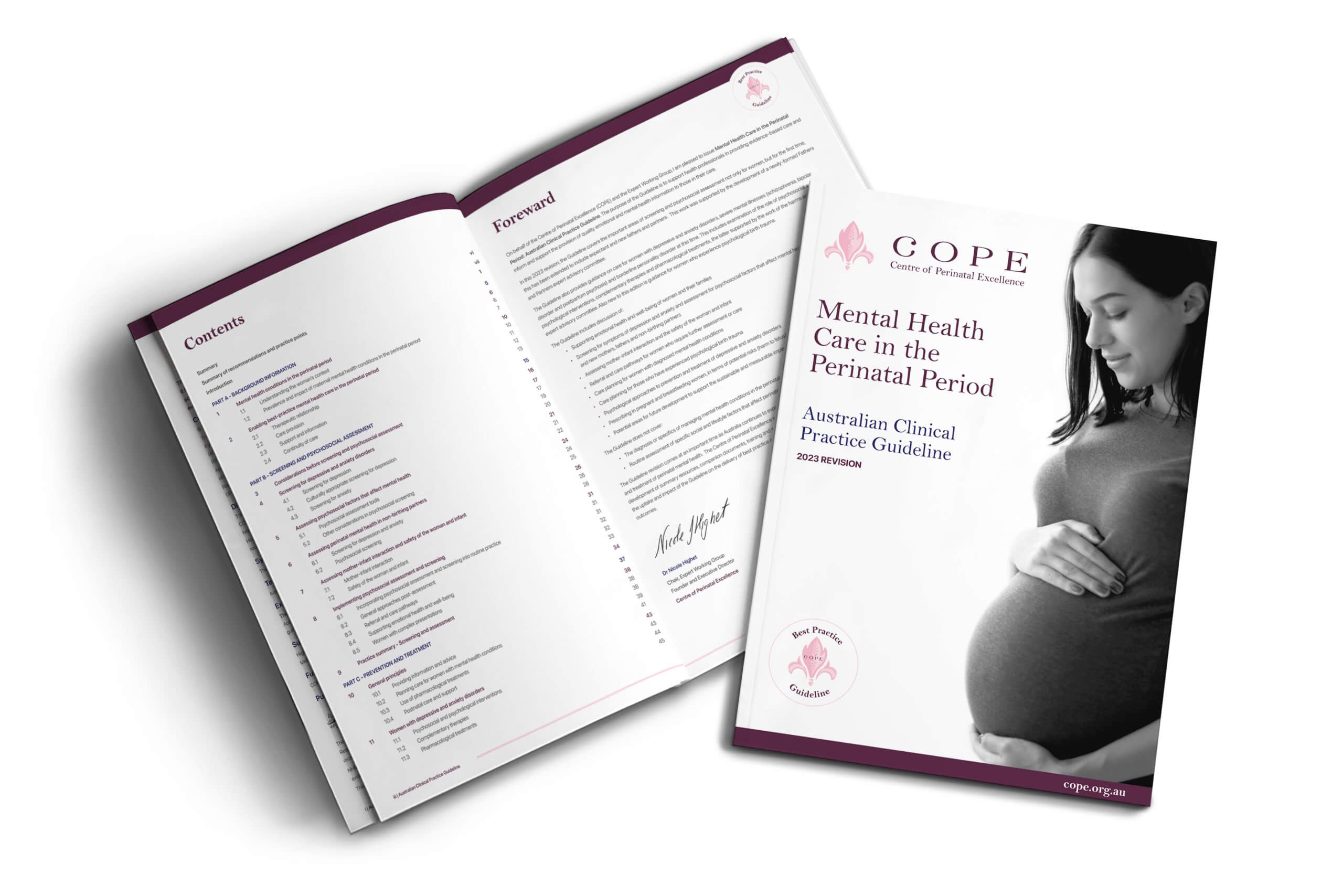Perinatal Mental Health Guideline: Summary for psychologists

It is important that women receive psychosocial support and evidence-based treatment or advice about mental health conditions during the perinatal period.
Providing psychosocial support
- Provide structured psychoeducation to women with symptoms of depression in the perinatal period.
- Advise women with symptoms of depression in the postnatal period of the potential benefits of a social support group.
Psychological approaches in the perinatal period
- Provide individual structured psychological interventions (cognitive behavioural therapy (CBT) or interpersonal psychotherapy (IPT)) to women with mild to moderate depression in the perinatal period.
- Advise women with symptoms of depression in the perinatal period of the potential benefits of facilitated self-help.
- Advise women with depression or anxiety in the postnatal period of the possible benefits of directive counselling.
- Advise women with diagnosed post-traumatic stress disorder of the potential benefits of post-traumatic birth counselling if they are experiencing depressive symptoms.
- For women who have or are recovering from depression and are experiencing mother–infant relationship difficulties, consider provision of or referral for individual mother–infant relationship interventions.
Medications in the perinatal period
- Selective serotonin reuptake inhibitors (SSRIs) are the first-line medication for women with moderate to severe depression or anxiety.
-
It is not usually necessary for women to discontinue the use of antidepressants during pregnancy or breastfeeding but any medications should be discussed with the prescribing doctor.
-
There is a high risk of relapse if medications for mental health conditions are ceased. If a medication is ceased, this needs to be done gradually and with the advice of a psychiatrist.
-
Women with severe mental illness may benefit from referral for review of their medications.
This is an adapted Summary of the 2023 Guideline for psychologists.
To access the full 2023 National Guideline – click here
Resources
Resources for women and their families
- COPE website – The COPE website contains extensive information and fact sheets on perinatal mental health disorders, and links to support services for women and their families.
- Ready to COPE – A free app that provides information about emotional health and wellbeing across the perinatal period. Also available as an email series in multiple languages.
- eCOPE Directory – eCOPE includes services and professionals that have a special focus on emotional and mental health in pregnancy and the following the birth of a baby.
Resources for health professionals
- COPE website – The COPE website contains extensive information, screening tools, online training programs and fact sheets specifically for health professionals.
- COPE online training – This free accredited online training is available for psychologists. COPE’s Applied Skills in Perinatal Mental Health Care and Assessment is also now available. This comprehensive perinatal mental health online training program is designed to provide mental health professionals with a structured approach to the assessment, diagnosis and treatment of perinatal mental health disorders.